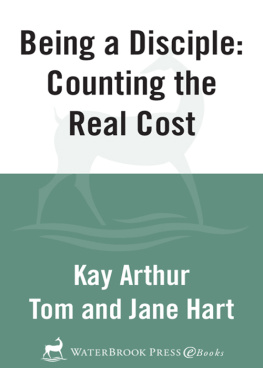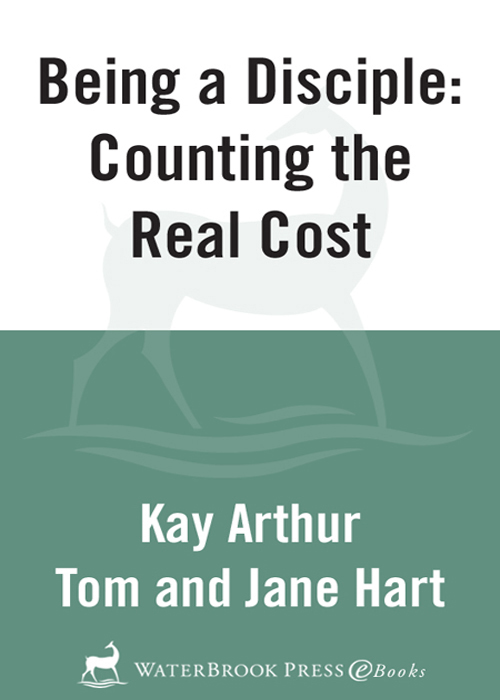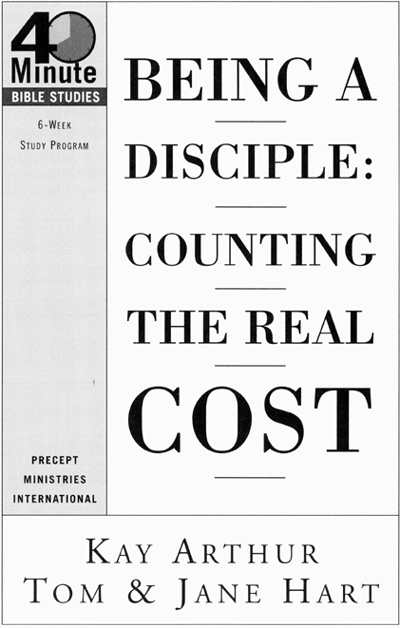This small-group study is for people who are interested in learning more about what the Bible says, but who have only limited time to meet together. Its ideal, for example, for a lunch group at work, an early morning mens group, a young mothers group meeting in a home, or a smaller Sunday-school class. (Its also ideal for small groups that typically have longer meeting timessuch as evening groups or Saturday morning groupsbut want to devote only a portion of their time together to actual study, while reserving the rest for prayer, fellowship, or other activities.)
This book is designed so that all the groups participants will complete each lessons study activities at the same time, while you re together.
However, youll need a facilitator to lead the groupsomeone to keep the discussion moving. (This persons function is not that of a lecturer or teacher. However, when this book is used in a Sunday-school class or similar setting, the teacher should feel free to lead more directly and to bring in other insights in addition to those provided in each weeks lesson.)
If you are your groups facilitator, the leader, here are some helpful points for making your job easier:
Go through the lesson and mark the text before you lead the group. This will give you increased familiarity with the material and will enable you to facilitate the group with greater ease. It may be easier for you to lead the group through the instructions for marking if you as a leader choose a specific color for each symbol you mark.
As you lead the group, start at the beginning of the text and simply read it aloud in the order it appears in the lesson, including the insight boxes, which may appear either before or after the instructions or in the midst of your observations or discussion. Work through the lesson together, observing and discussing what you learn. As you read the Scripture verses, have the group say aloud the word they are marking in the text.
The discussion questions are there simply to help you cover the material. As the class moves into the discussion, many times you will find that they will cover the questions on their own. Remember the discussion questions are there to guide the group through the topic, not to squelch discussion.
Remember how important it is for people to verbalize their answers and discoveries. This greatly strengthens their personal understanding of each weeks lesson. Try to ensure that everyone has plenty of opportunity to contribute to each weeks discussions.
Keep the discussion moving. This may mean spending more time on some parts of the study than on others. If necessary, you should feel free to spread out a lesson over more than one session. However, remember that you dont want to slow the pace too much. Its much better to leave everyone wanting more than to have people dropping out because of declining interest.
If the validity or accuracy of some of the answers seems questionable, you can gently and cheerfully remind the group to stay focused on the truth of the Scriptures. Your object is to learn what the Bible says, not to engage in human philosophy. Really read the Scriptures, asking God to show everyone His answers.
BEING A DISCIPLE:
COUNTING THE
REAL COST
W hen Jesus called men and women to follow Him, what did He expect of them? And was it reasonable? Whats the difference between those who say theyre Christians and everyone else? What proves whether a person is a true disciple of Jesus Christ or not?
These are the questions we want to answer as we search out what the Bible has to say about the subject of being a disciple of Jesus Christ. We are going to take an inductive approach, which means that you will observe the Word of God for yourself. Then, discovering what it says and means, you can determine if you want to order your life according to its truth.
Most people are followers of someone. Someone catches their attention, captures their imagination, or shares the same interests and values. Consequently they want to know more about that personthe goals he or she is pursuing, the accomplishments attained. They want to talk and learn from this person. And if what they find is pleasing or applicable to their desires and ambitions, they want to emulate him, pursue his interests, or take up his cause.
Basically we are followers of those who have gone before us or those who have achieved what we want to achieve. This may be our parents, our peers, our teachers, or our heroes in the realms of our interestbut there is usually someone we want to be like because we believe in who he is or what he is about.
A disciple is a follower. Moses had disciples, the Pharisees had disciples, John the Baptist had disciples.
When Jesus began His public ministry, He, too, looked for disciples so that, when His work was finished and He left to be with the Father again, there would be others who would faithfully carry on the work of the kingdom of Goda kingdom that was now at hand.
OBSERVE
As we begin, lets look at a passage that shows us how Jesus called His first disciples.
Leader:Read aloud Matthew 4:17-22.Mark the wordfollowby underlining it and putting an arrow on the end of the line, like this:

17 From that time Jesus began to preach and say, Repent, for the kingdom of heaven is at hand.
18 Now as Jesus was walking by the Sea of Galilee, He saw two brothers, Simon who was called Peter, and Andrew his brother, casting a net into the sea; for they were fishermen.
19 And He said to them, Follow Me, and I will make you fishers of men.
20 Immediately they left their nets and followed Him.
21 Going on from there He saw two other brothers, James the son of Zebedee, and John his brother, in the boat with Zebedee their father, mending their nets; and He called them.
22 Immediately they left the boat and their father, and followed Him.
DISCUSS
When Jesus asked them to follow Him, what did He say He would make them?
What had they been doing?
What do you think Jesus meant by fishers of men?
Leader:Have the group share in fifteen seconds or less what some of them were doing when Jesus first called them to believe on Him. Why did they follow Him?
OBSERVE
The pond from which the disciples were going to fish was the world! You might say this was the private lake of the devilor so the devil thought! But Jesus knew He had many fish who needed to be netted into the kingdom of God.















